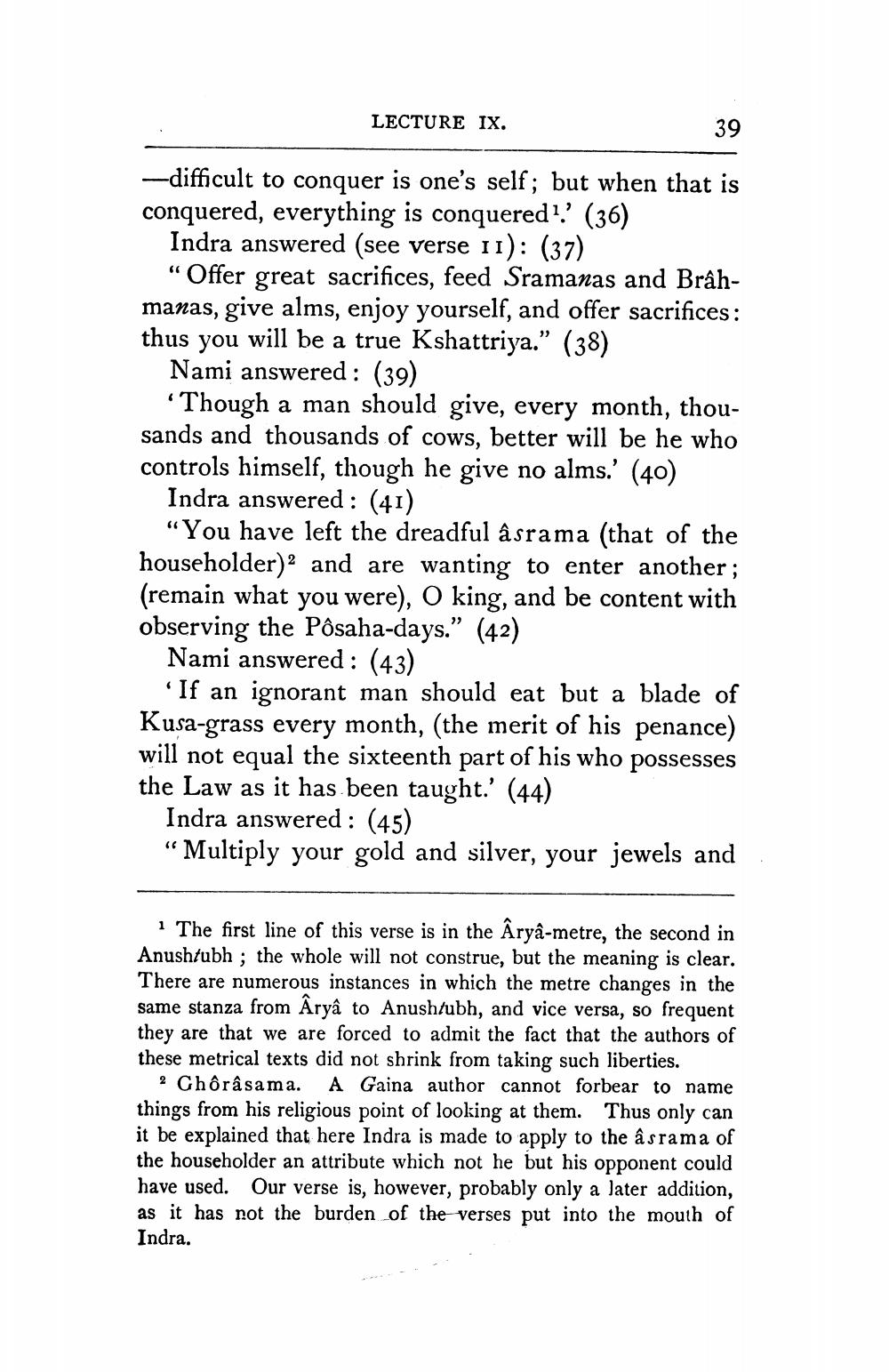________________
39
-difficult to conquer is one's self; but when that is conquered, everything is conquered1.' (36)
Indra answered (see verse 11): (37)
"Offer great sacrifices, feed Sramanas and Brâhmanas, give alms, enjoy yourself, and offer sacrifices: thus you will be a true Kshattriya." (38)
Nami answered: (39)
'Though a man should give, every month, thousands and thousands of cows, better will be he who controls himself, though he give no alms.' (40)
Indra answered: (41)
LECTURE IX.
"You have left the dreadful âsrama (that of the householder) and are wanting to enter another; (remain what you were), O king, and be content with observing the Pôsaha-days." (42)
Nami answered: (43)
'If an ignorant man should eat but a blade of Kusa-grass every month, (the merit of his penance) will not equal the sixteenth part of his who possesses the Law as it has been taught.' (44)
Indra answered: (45)
"Multiply your gold and silver, your jewels and
1 The first line of this verse is in the Âryâ-metre, the second in Anush/ubh; the whole will not construe, but the meaning is clear. There are numerous instances in which the metre changes in the same stanza from Âryâ to Anush/ubh, and vice versa, so frequent they are that we are forced to admit the fact that the authors of these metrical texts did not shrink from taking such liberties.
* Chôrâsama. A Gaina author cannot forbear to name things from his religious point of looking at them. Thus only can it be explained that here Indra is made to apply to the âsrama of the householder an attribute which not he but his opponent could have used. Our verse is, however, probably only a later addition, as it has not the burden of the verses put into the mouth of Indra.




